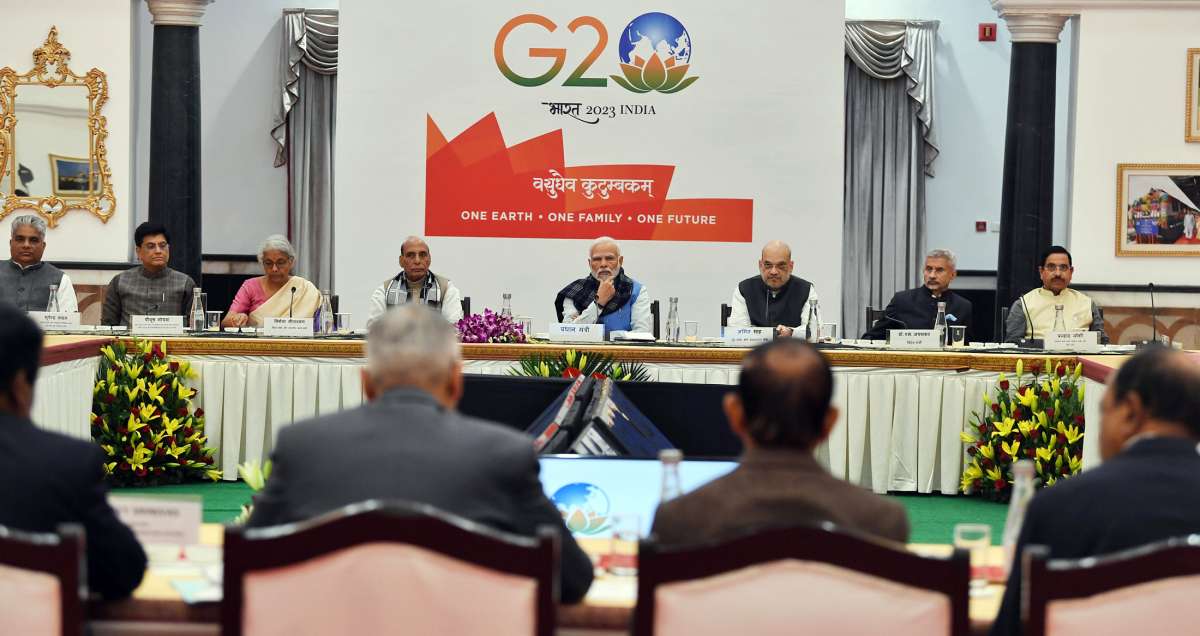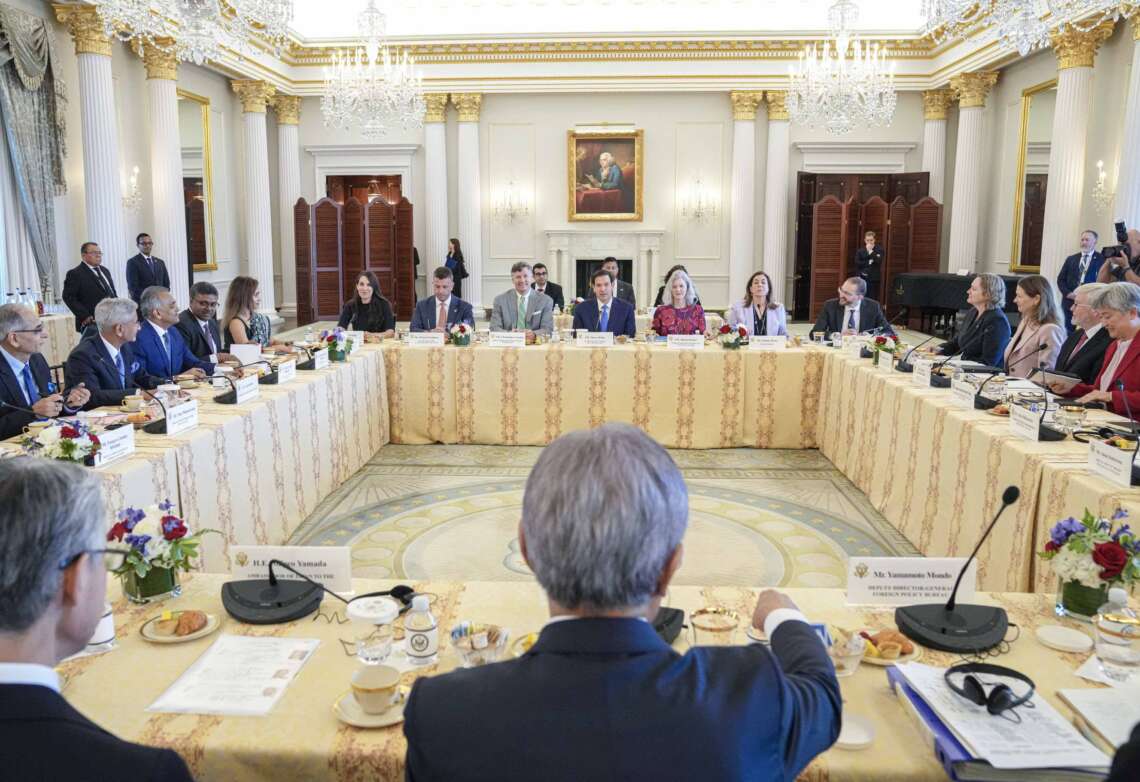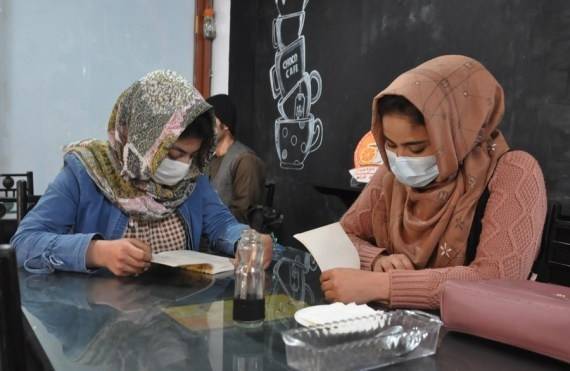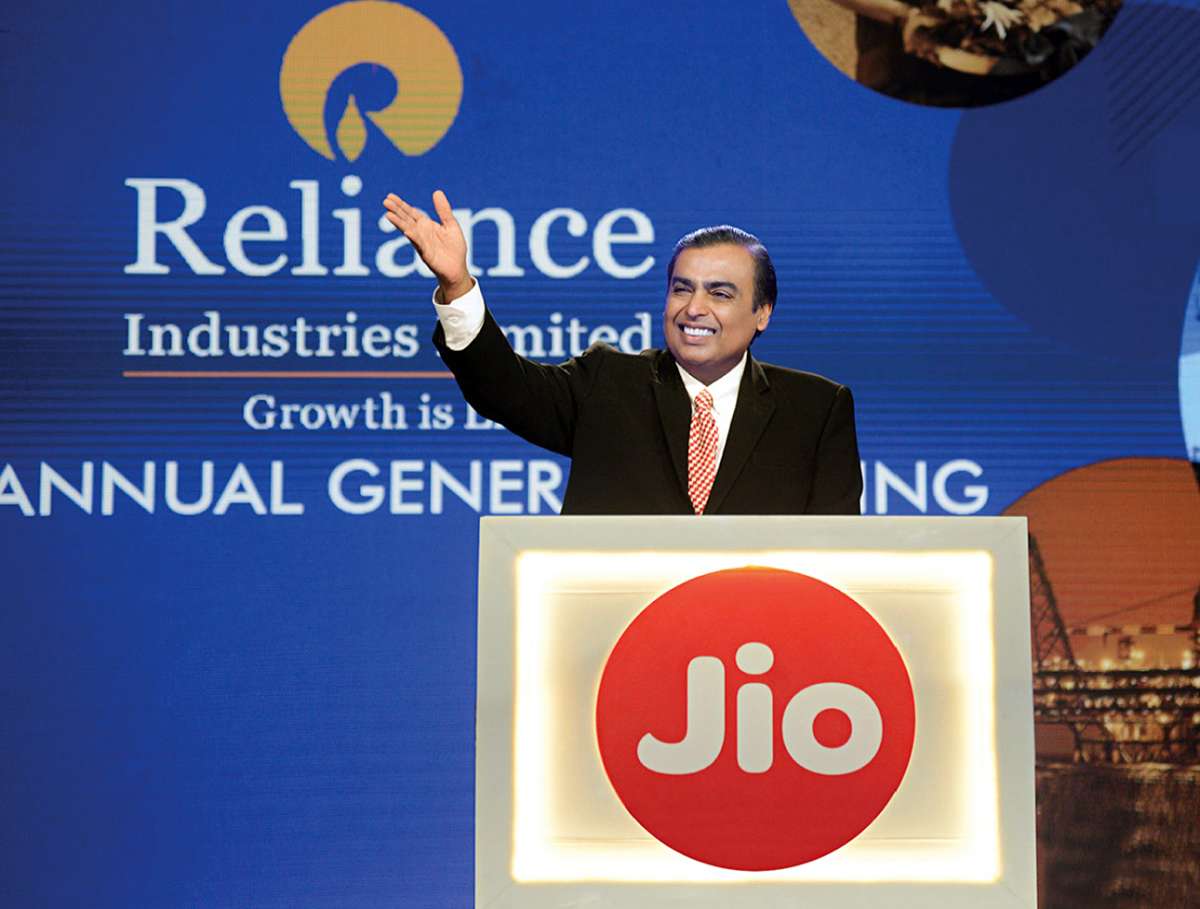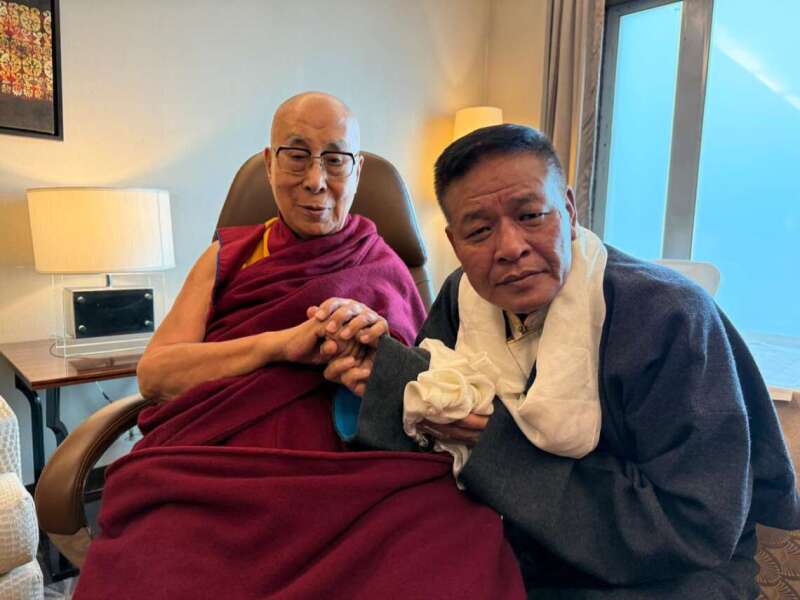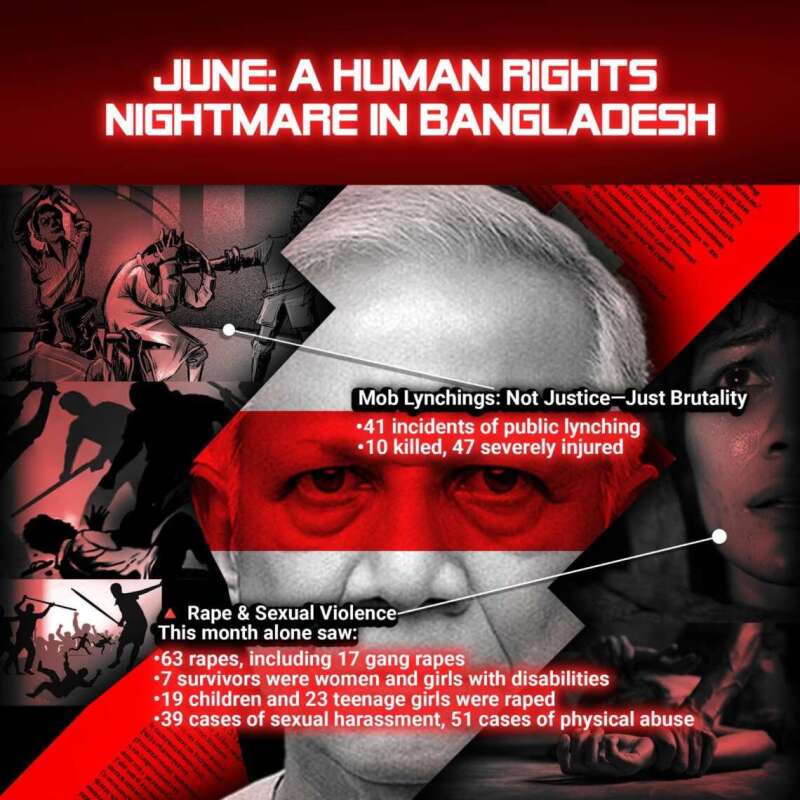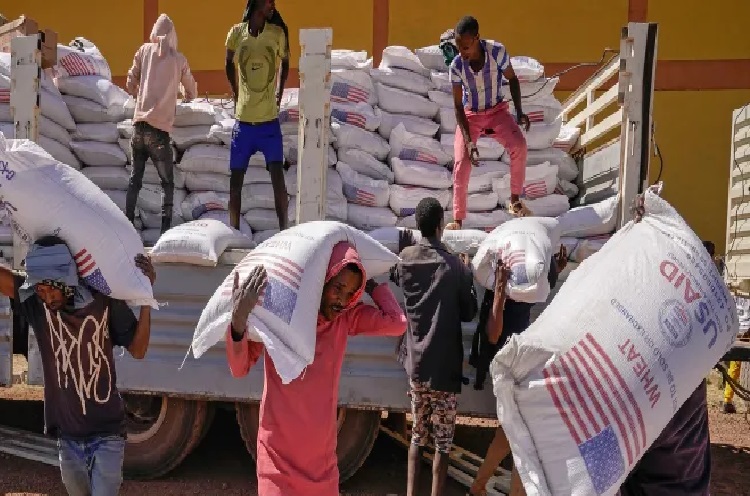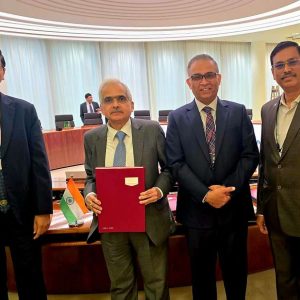People trust PM Modi for his integrity and hard work, and these are the attributes needed to propel the financial sector in India to rapidly become a much bigger contributor to GDP than agriculture, writes Prof. Madhav Das Nalapat
Once he became Prime Minister of India, Narendra Modi initiated a raft of measures that brought hundreds of millions of citizens into the formal banking network. Into the new accounts flowed subsidies without the customary middleman’s cut. Since 2019 in particular, several of the irksome “Bribe Creator” regulations and laws that had lingered for decades have been pruned away by PM Modi, with more to follow.
Given such a trajectory, it is only a matter of time before GST rates get lowered and applicability gets further rationalised. The GST structure acting as a booster of the rate of growth is the best path towards a consistent and significant increase in revenue. Given that the Finance Ministry is showing a much greater zeal for reform in Modi 2.0, public expectation is high that the coming Union Budget will see a reduction in tax rates so that tens of millions more citizens voluntarily sign on to the family of taxpayers.
Finance Minister N. Sitharaman has worked hard to ensure that tax harassment gets reduced, and such a change in the chemistry of tax officials from being policemen in civilian dress to acting as friends of the taxpayer is visible on the ground.
President Biden and his UK and EU partners, by their actions following the invasion of Ukraine by Russian forces in 2022, have made the financial primacy of the US, EU and the UK vulnerable. The London Metal Exchange (LME) has till now been the dominant player in the pricing of commodities, from gold to copper, just as the CME (Chicago Mercantile Exchange) has been for a huge chunk of global mergers and acquisitions.
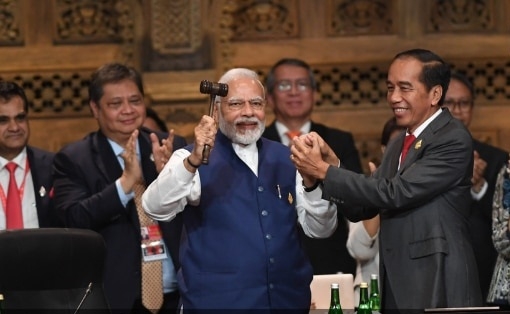
Working in tandem with the CME is the Nasdaq and the NYSE, which together form the trio that gives Washington a chokehold on the global marketplace. As a consequence of the Russia-related sanctions and the fuelling through NATO armaments of the Russia-Ukraine war, global trust in these institutions being independent of temporary geopolitical considerations has been substantially reduced from the already lower base caused by the 2008 financial meltdown. This was caused by the greed of a few US, UK, Swiss and EU bankers and traders to profit no matter what the cost to society, especially in third countries.
President W.J. Clinton and President George W. Bush oversaw a slashing of legal barriers erected to prevent unethical financial trades. If today is the turn of oligarchs whose only crime is that they are ethnic Russians to be deprived of their assets without due process, tomorrow it may be the turn of the Saudis or the citizens of Qatar. Such quirky, indeed thoughtless, behaviour has highlighted the need for new finance and commodity platforms not beholden to western chancelleries in the way those located in the US,UK or the EU are.
During the period in office of several previous Indian governments, stock exchanges became the playgrounds of a few top traders, businesspersons and their political and bureaucratic accomplices. The services of unscrupulous brokers were utilised to fix prices to engineer windfall tax free profits, always at the cost of the small investor, especially those who had invested in mutual funds.
Thanks to the standards of integrity established by PM Modi with the assistance of FM Sitharaman, investigative agencies have begun looking at such exchange trades, as well as other misdemeanours such as getting nationalised banks to sell arbitrarily classified non-performing assets (NPAs) at throwaway prices, that were subsequently resold at a handsome profit. A particular stock exchange that was once a leader in the country, but which is now almost defunct, specialised in so-called small scale sector trades that in effect became a money laundering machine.
Volumes in that exchange, as in some others, has declined as a consequence of investors getting wary of such traders. Once PM Modi sweeps away such dirt from stock markets, India will become the preferred platform for trades in equities, commodities, energy and bonds. This is the vision that has inspired the creation of GIFT City in Gujarat. This innovative project is expected to boost its volumes once it acquires a credible management team that seeks to serve particularly small and medium investors.
Almost two-thirds of the national income of Ireland comes from just two exchange towers in Dublin that house commodity and other exchanges. High volumes depend on the credibility built by trust in integrity, not in land and buildings. People trust PM Modi for his integrity and hard work, and these are the attributes needed to propel the financial sector in India to rapidly become a much bigger contributor to GDP than agriculture. Measures to ensure such a change are certain to be a highlight during 2023, when the G-20 has PM Modi as its President.
Inclusive growth
As institutions set up in the past falter and fail, the vacuum is getting filled by newer entrants. Under the leadership of PM Modi, the G-20 is being set on course to emerge as a replacement not only for the G-7 but even for the UNSC. Thanks to the death grip that the five veto-wielding powers have over the UNSC, it has become a case of 3+2=0. The Security Council has, in substance, if not in theatrics, become an irrelevance.
To this day, the United States, Russia, France and the United Kingdom are reluctant to prod the People’s Republic of China (PRC) into accepting a UNGA vote on admitting India into the UNSC Permanent Membership (most likely without veto power for the time being). The entry of India and later South Africa and Brazil into an expanded UNSC could revive the institution, but is unlikely to take place.
The G-20 was conceived by the G-7 as a vehicle where the latter’s wish list could be accepted wholesale by the other twelve countries in the grouping. To make doubly sure of this, the European Union (EU) was included as a member. The EU machinery is similar to that of NATO headquarters, with comfortable working conditions and ample salaries. NATO has during this century shown an unwillingness to enter into kinetic combat, except with foes that are far inferior in manpower and weaponry.
Even in such cases, NATO has usually been on the losing side, whether it be in Libya, Syria and Iraq (where a pro-Iran government was installed courtesy George W. Bush). In 2021, the Afghan military and people were abandoned by NATO to the non-existent mercies of the Taliban, with humanitarian consequences that were both ignored and denied by Washington, London, Paris and Berlin during the run-up to President Biden’a surrender to the Taliban in August 2021.
The same fate is on track in Ukraine, where that unfortunate country is being hacked to bits by tactics and strategies devised by the very NATO generals whose incompetence caused chaos in whichever theatre they were active in. Despite their aversion to kinetic combat, the risk is rising of a direct conflict between the Sino-Russian alliance and NATO on the plains of Ukraine, with 2023 emerging as a year where the prospect of this is higher than during the previous year.
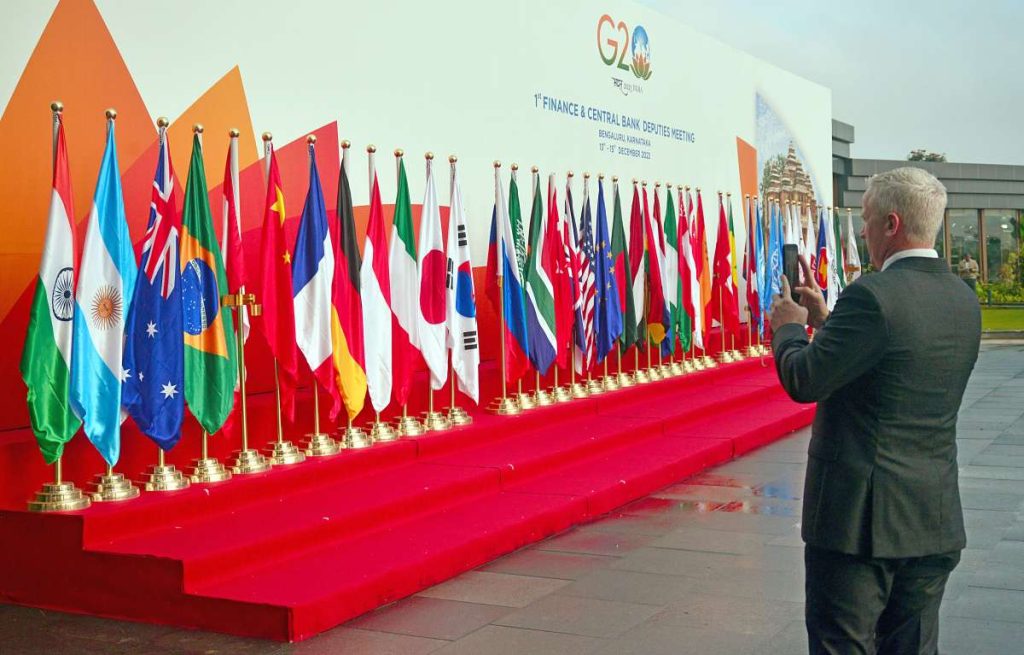
The switch to local currencies among non-members that has been caused by wariness of the unilateral and unpredictable financial and other sanctions imposed on country after country by NATO member states has made calculations of GDP in US dollars an inaccurate portrayal of a country’s economic strength. Given that, by the close of the Modi Presidency, the G-20 is set to emerge as a keystone institution of the international order, especially as (unlike the UNSC), there are no differences in the class of membership. All are equal, as they should be in a world where leaders endlessly express faith in a common humanity while clinging on to exceptionalism and exclusivity.
While the presence of the European Union in G-20 is welcome, what is needed is to ensure the participation as full members of similar regional entities in Africa, South America and Asia. Such representation would make a G-24 or even a G-25 far more reflective of global realities than the present structure. Another innovation would be to have a permanent (although small) secretariat that could assist in coordination and monitoring.
This could be located in one of the 19 countries that are part of G-20, preferably avoiding the trap of locating it in a high cost location, as was the case with numerous UN institutions. Thus far, the potential of the G-20 to become an engine of global growth in a sustainable way has been underplayed by many of its members, especially those that are part of the G-7. Under the Presidency of Prime Minister Modi, this is on track to change.
The potential of the G-20 (perhaps with an expansion in its numbers through the inclusion of significant regional groupings in addition to the EU) is likely to be placed on the path towards actualisation, if Modi has his way. That there ought not to be taxation without representation has been acknowledged as a truism, although denied by authoritarian governments. In much the same way, there ought not to be the placing of responsibility without participation in the processes which led to such decisions being taken.
Thus far, big powers have sought to impose their will on other countries. From the start of his tenure as Prime Minister in 2014, Prime Minister Modi has emphasised the importance of “Vasudhaiva Kutumbakam”, an implied equality among nations, just as among peoples. The sudden spurt in activities of the G-20 now that India has been made its leader during the coming year is palpable. 2022 was a year where global institutions were ineffective in preventing war or in promoting economic growth. Under India’s G-20 leadership, 2023 promises to be entirely different.


